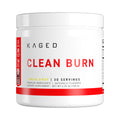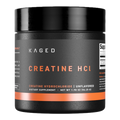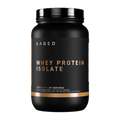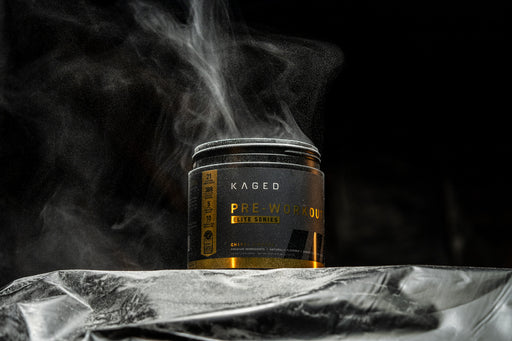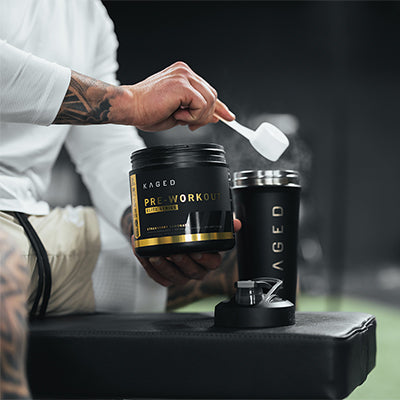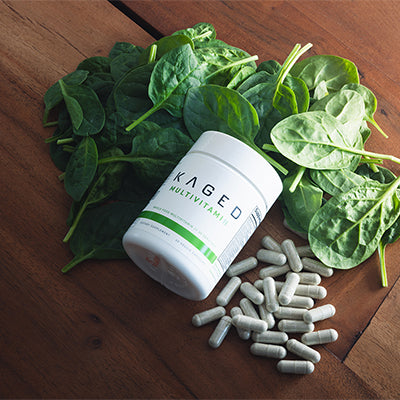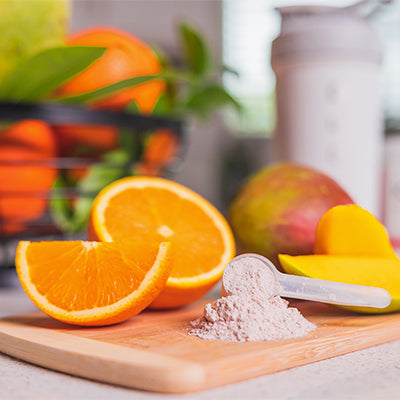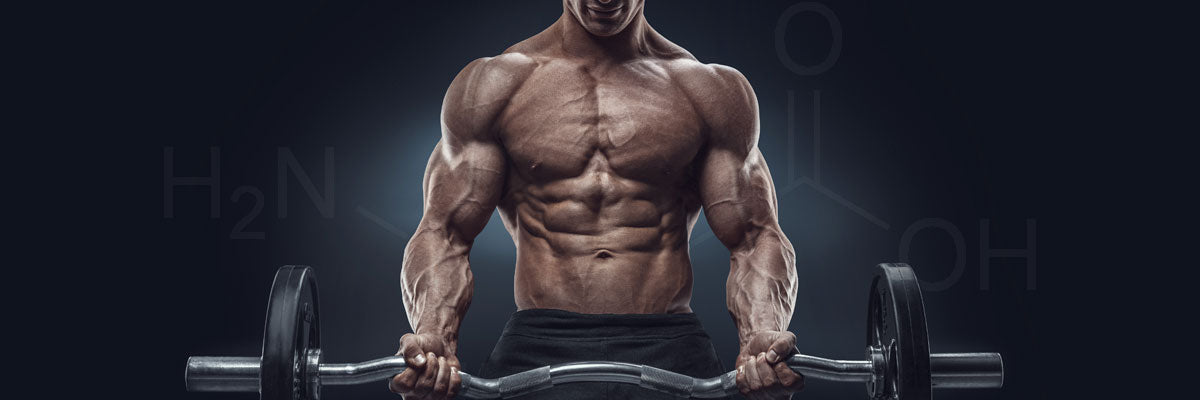History of Creatine
Creatine is the most studied sports nutrition ingredient with countless studies demonstrating its efficacy and safety –in the gym, the lab, and on the field. After several decades of research and a few gold medals, creatine has become a household name in terms of supplements. Creatine was discovered in 1832 by French chemist Michel Eugène Chevreu, when he extracted it from meat. However, the application of creatine didn’t occur until 1912 when Harvard researchers discovered that ingesting creatine could dramatically increase muscle creatine content. In the 1970s, Soviet scientists showed that oral creatine supplements improved athletic performance in short intense activities. However, this performance enhancing secret remained hidden behind the iron curtain. Decades later, creatine has hit the mainstream market as an ergogenic, with hundreds of products lining store shelves and webpages around the world.
Creatine Goes Big Time
Creatine’s first major exposure came at the Olympic level - on the podium, nonetheless. Following the 1992 Olympics in Barcelona, it was reported that British gold medalists Linford Christie (100 m dash) and Sally Gunnell (400 m hurdles) used creatine. Soon enough, creatine supplementation became a staple ingredient in every serious athlete’s routine. In fact, by the 1996 Olympics in Atlanta, it was estimated that about 80% of Olympians used creatine.
With such strong research and real-world results behind it, it’s not surprising that The Journal of International Society of Sports Nutrition proclaimed creatine monohydrate to be the most effective performance-enhancing nutritional supplement available to athletes.[1] Specifically, creatine monohydrate has been found to increase high-intensity exercise capacity and can even contribute towards improving lean body mass and strength.
Backed by Science
As one of the most-researched supplements in the industry, creatine has extensive proof behind its effectiveness. In fact, it has been so thoroughly researched that meta-analyses have been conducted, whereby multiple studies are analyzed to find overall effects. One such meta-analysis looked at 22 studies to examine the effects creatine supplementation had on muscle strength and weightlifting performance. The researchers concluded that the average increase in 1 RM muscle strength following creatine supplementation was 8% greater than placebo groups. Similarly, the average increase in weightlifting performance (maximal repetitions at a given percent of maximal strength) was 14% greater (26 vs 12 %) in those who supplemented with creatine compared to the placebo groups. [2]
Looking at body composition, a large meta-analysis of 100 studies examined how short-term creatine supplementation impacted body mass, lean body mass, as well as aerobic performance. Improvements in body mass and lean body mass were seen in most of the included studies. In exercise lasting 30 seconds or less, creatine supplementation was found to improve multiple measures of performance compared to the placebo groups. [3]
Further for sports performance, 300 studies were examined for the effects creatine supplementation had on outcomes such as strength and power, sprint performance, and work performed during maximal effort sets. Of the 300 studies, it was found that about 70% of the studies demonstrated benefits in these areas for those who supplemented with creatine for a short duration (e.g., 20g per day for 5 – 7 days). [4]
Common Complaints About Creatine
Even with the knowledge of creatine’s performance-enhancing benefits, some people have had some issues with creatine which has led them to avoid using it. These common complaints can be easily explained to help you reap the rewards creatine has to offer.
1. Non-Responder:
Some people flat out say creatine doesn’t work for them. There are a variety of reasons which can impact someone’s response to the supplement, including genetics, fast twitch muscle fibre distribution, muscle cross-section area, and dietary habits. A study which examined creatine responders to non-responders concluded that a favorable pre-existing biological profile must be in place to be considered a responder to creatine supplementation. [5]
2. Poor Bioavailability:
Early studies found creatine’s bioavailability to be approximately 99% with it either being taken up by the muscle cells or excreted in the urine. However, other researchers argue that creatine isn’t fully absorbed from the gastrointestinal tract, leaving a lot of room for improvement in terms of bioavailability. [6] For example, one study found that a maximum of 3% of the ingested creatine was transported across the intestine within a 90-minute time frame [7], while another study found that approximately 46% of ingested creatine was excreted in the participant’s urine [8]. To be honest, the results are all over the map, but these results raise the question of how well regular creatine is really utilized by the body.
3. Poor Solubility:
Many creatine monohydrate products have poor solubility in room temperature water, and even worse solubility in cold water. How can you tell if your product is soluble? Check the bottom of your shaker cup after you finish drinking – if you see particles left at the bottom of the cup, the creatine didn’t fully disperse into the water. It’s important to note that solubility increases as water temperature increases. For example, studies have found that 14 g of creatine can be dissolved into 1 litre of fluid at 20°C (about room temperature), but 34 g of creatine can be dissolved into 1 litre of fluid at 50°C (122°F). [9] However, consuming a scalding hot pre- or post-workout shake isn’t practical, leaving users frustrated with all the creatine left at the bottom of the shaker cup.
4. Bloating:
One of the most common complaints that people have about creatine is that it makes them feel bloated. This could be influenced by a few different issues, such as the increase in fluid intake from trying to make their creatine more soluble in water, or a low-quality creatine product. These creatine formula supplements may contain excessive sodium or simple sugars to help boost absorption. However, they may leave some users feeling bloated due to the swing in electrolytes and nutrients around their training session, when digestion isn’t a main focus of the body.
Key Features of High Quality Creatine
Historically, creatine has experienced numerous breakthroughs that elevated it in the sports nutrition field and led it to becoming one of the most researched products in the industry. However, even with this information, many people still refrain from using creatine due to hearing of the negative side effects, or previously experiencing them themselves. Give creatine another chance by shopping for our new innovation, CreaClear™.
First and foremost, you’ll see the difference with an encapsulated creatine monohydrate like CreaClear the first time you try it. CreaClear encapsulates the creatine molecules with a protein-based matrix has been found to enhance solubility, allowing the product to easily blend into water, leaving no residue behind. Additionally, this approach protects the creatine from being broken down or absorbed by the stomach or intestinal tract. This allows the creatine to reach the muscle cells and perform its job of muscular energy production – benefiting your training sessions and fitness goals.
If you have previously had poor experiences with creatine, or have stayed away from it due to what other people have told you, it’s time to give it another chance with CreaClear.
References
[1] Buford, T. W., Kreider, R. B., Stout, J. R., Greenwood, M., Campbell, B., Spano, M., . . . Antonio, J. (2007). International Society of Sports Nutrition position stand: Creatine supplementation and exercise. Journal of the International Society of Sports Nutrition, 4(1), 6. doi:10.1186/1550-2783-4-6
[2] Rawson, E. S., & Volek, J. S. (2003). Effects of Creatine Supplementation and Resistance Training on Muscle Strength and Weightlifting Performance. Journal of Strength and Conditioning Research, 17(4), 822-831. doi:10.1519/00124278-200311000-00031
[3] Branch, J. D. (2003). Effect of Creatine Supplementation on Body Composition and Performance: A Meta-analysis. International Journal of Sport Nutrition and Exercise Metabolism, 13(2), 198-226. doi:10.1123/ijsnem.13.2.198
[4] Kreider, R. B. (2003). Effects of creatine supplementation on performance and training adaptations. Guanidino Compounds in Biology and Medicine, 89-94. doi:10.1007/978-1-4615-0247-0_13
[5] Syrotuik, D. G., & Bell, G. J. (2004). Acute Creatine Monohydrate Supplementation: A Descriptive Physiological Profile of Responders vs. Nonresponders. Journal of Strength and Conditioning Research, 18(3), 610-617. doi:10.1519/00124278-200408000-00039
[6] Miller, D. W., Augustine, S., Robinson, D. H., Vennerstrom, J. L., & Wagner, J. C. (2013). Oral Bioavailability of Creatine Supplements: Insights into Mechanism and Implications for Improved Absorption. In Nutrition and Enhanced Sports Performance: Muscle Building, Endurance, and Strength (pp. 395-403). Elsevier Inc. DOI: 10.1016/B978-0-12-396454-0.00040-0
[7] Dash, A. K., Miller, D. W., Huai‐Yan, H., Carnazzo, J., & Stout, J. R. (2001). Evaluation of Creatine Transport Using Caco‐2 Monolayers as an In Vitro Model for Intestinal Absorption. Journal of Pharmaceutical Sciences, 90(10), 1593-1598. doi:10.1002/jps.1109
[8] Burke, D. G., Smith-Palmer, T., Holt, L. E., Head, B., & Chilibeck, P. D. (2001). The Effect of 7 Days of Creatine Supplementation on 24-Hour Urinary Creatine Excretion. Journal of Strength and Conditioning Research, 15(1), 59-62. doi:10.1519/00124278-200102000-00010
[9] Jäger, R., Purpura, M., Shao, A., Inoue, T., & Kreider, R. B. (2011). Analysis of the efficacy, safety, and regulatory status of novel forms of creatine. Amino Acids, 40(5), 1369-1383. doi:10.1007/s00726-011-0874-6

